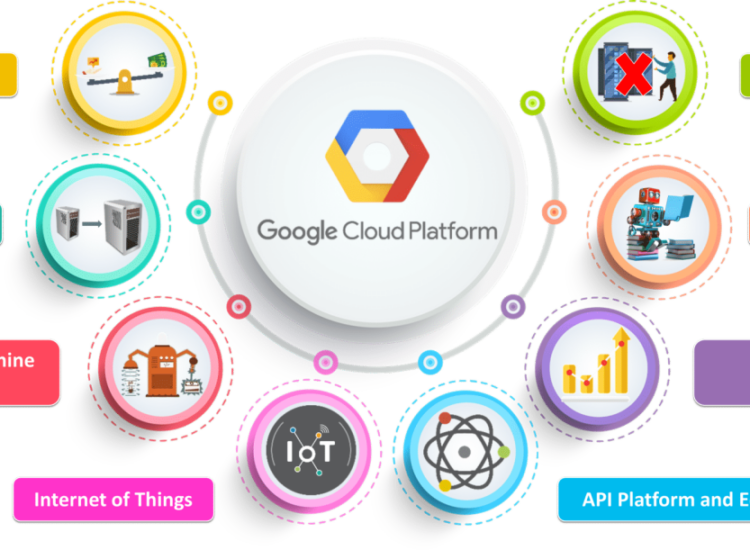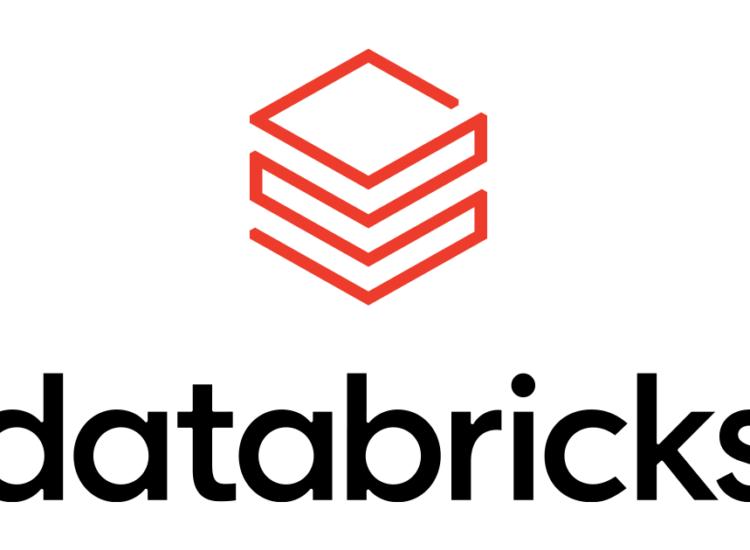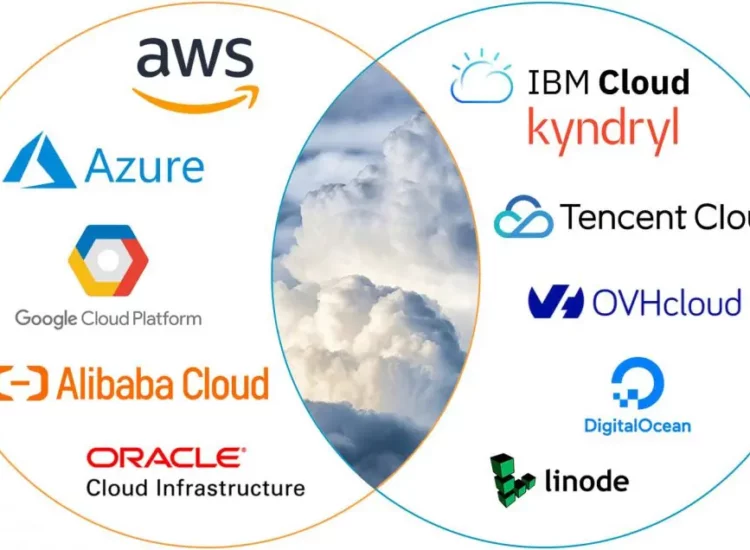Artificial Intelligence (AI) is no longer a buzzword; it’s a reality transforming industries and reshaping the future. Within this dynamic landscape, Level AI stands out as a trailblazer. This article dives into the innovative technology powering Level AI, revealing its impact and potential.
Toc
Introduction to Level AI

Level AI is a leading platform that harnesses the power of artificial intelligence to deliver groundbreaking solutions across various industries. This section provides an overview of the platform’s features and its significance in the tech ecosystem.
Overview of Level AI
Level AI has emerged as a pivotal player in the AI industry, offering sophisticated technologies that solve complex problems and streamline processes. From healthcare and retail to finance and smart city initiatives, Level AI’s applications are vast and impactful. The platform provides a range of AI solutions, including predictive analytics, natural language processing, and computer vision.
Impact of Level AI
The use of artificial intelligence has become ubiquitous in today’s world, with an increasing number of industries incorporating it into their operations. By leveraging cutting-edge AI technology, Level AI enables businesses to make data-driven decisions and improve efficiency while reducing costs. This not only benefits individual companies but also contributes to the growth and advancement of entire industries.
Potential of Level AI
As the demand for more advanced and intelligent solutions continues to rise, so does the potential for Level AI to revolutionize various sectors. With a team of experts constantly pushing the boundaries of what’s possible with AI, Level AI is at the forefront of innovation. The platform’s potential for growth and impact is limitless, making it an exciting player to watch in the evolving world of artificial intelligence.
Significance in the Tech Industry
In an era where data-driven decisions are paramount, Level AI provides the analytical prowess needed to stay ahead. Its unique blend of machine learning (ML) and predictive analytics sets it apart, making it indispensable for businesses aiming to leverage AI for competitive advantage. With its advanced algorithms and vast data processing capabilities, Level AI is shaping the future of technology in a multitude of industries.
Understanding AI and its Applications

To appreciate the innovation behind Level AI, it’s essential to understand the fundamentals of AI and its broader applications.
Defining Artificial Intelligence
Artificial Intelligence, commonly abbreviated as AI, refers to the simulation of human intelligence processes by machines, particularly computer systems. These processes include learning (the acquisition of information and rules for using it), reasoning (using rules to reach approximate or definite conclusions), and self-correction. Specific applications of AI include expert systems, natural language processing (NLP), speech recognition, and machine vision.
Categories of AI
AI can be broadly classified into two categories: narrow AI and general AI. Narrow AI, also known as weak AI, is designed to perform a narrow task (e.g., facial recognition or internet searches) and operates within a pre-defined range of functions. In contrast, general AI, also known as strong AI, is capable of performing any intellectual task that a human can do. While most of today’s applications fall under narrow AI, efforts are ongoing to achieve general AI.
Key Technologies in AI
Several key technologies underpin AI and contribute to its wide range of applications. These include:
- Machine Learning (ML): A subset of AI, ML involves the use of algorithms and statistical models to enable systems to improve their performance on a task with experience.
- Deep Learning: A specialized form of ML, deep learning utilizes neural networks with many layers (hence “deep” networks) to analyze various patterns in data.
- Natural Language Processing (NLP): This area deals with the interaction between computers and humans using natural language, allowing machines to understand and respond to text or speech inputs meaningfully.
- Computer Vision: This field pertains to how machines interpret and make decisions based on visual information from the world (e.g., images, videos).
- Robotics: Combining AI with robotics results in intelligent machines capable of performing complex tasks autonomously or semi-autonomously.
Applications of AI
AI’s versatility makes it applicable to an array of sectors. In healthcare, AI aids in diagnostic processes and personalized medicine. In finance, it enhances fraud detection and automates trading. Retailers use AI for inventory management and customer service through chatbots. Smart cities leverage AI to optimize traffic management and improve public safety. The applications are almost endless, reflecting AI’s transformative potential across different domains.
In the subsequent sections, we will explore how Level AI integrates these technologies within its platform and the practical applications it enables across industries.
Diverse Applications of AI
Artificial Intelligence has proven to be a transformative force across various industries, each benefiting from its unique capabilities.
Healthcare
In the healthcare industry, AI is revolutionizing the way medical practitioners diagnose and treat patients. By analyzing vast amounts of medical data, AI algorithms can identify patterns and predict health outcomes, leading to early diagnosis and personalized treatment plans. For instance, AI-powered imaging tools can detect anomalies in medical scans with greater accuracy than traditional methods. Additionally, AI-driven predictive models help in anticipating patient admissions and managing hospital resources more effectively.
Financial Services
AI’s impact extends significantly into the financial sector, where it enhances fraud detection, risk management, and customer service. Machine learning algorithms analyze transactional data to detect unusual activity, thereby preventing fraud in real-time. In trading, AI systems scrutinize market trends and execute trades based on sophisticated predictive models, improving returns and reducing risks. Chatbots and virtual assistants streamline customer interactions, providing instant support and freeing up human agents for more complex queries.
Retail and E-commerce
For retail and e-commerce, AI plays a crucial role in optimizing operations and enhancing customer experiences. Inventory management systems use AI to predict demand and optimize stock levels, reducing waste and ensuring product availability. Personalized recommendation engines improve customer satisfaction by suggesting products based on individual browsing and purchasing history. Additionally, AI-driven chatbots enhance customer service by responding to inquiries and resolving issues quickly.
Transportation and Logistics
In the realm of transportation and logistics, AI contributes to smart routing, autonomous vehicles, and efficient supply chain management. AI algorithms analyze traffic data to recommend optimal routes, reducing travel time and fuel consumption. Autonomous vehicles, powered by AI, promise safer and more efficient transportation by minimizing human error. Furthermore, AI optimizes supply chains by forecasting demand, managing inventory, and predicting maintenance needs, leading to cost savings and improved efficiency.
Smart Cities
AI is a cornerstone for developing smart cities, where technology is used to improve urban living conditions. Intelligent traffic management systems analyze real-time data to optimize traffic flows and reduce congestion. AI-powered surveillance enhances public safety by identifying potential threats and enabling rapid response. Moreover, AI applications in energy management help in monitoring and reducing energy consumption, contributing to sustainability efforts.
As we delve deeper into the specifics, the following sections will highlight how Level AI leverages these advanced technologies to drive innovation across these sectors and beyond. The integration of AI by Level AI within its platform underscores its commitment to pushing the boundaries and enabling smarter, more efficient solutions.
Specific Applications of Level AI
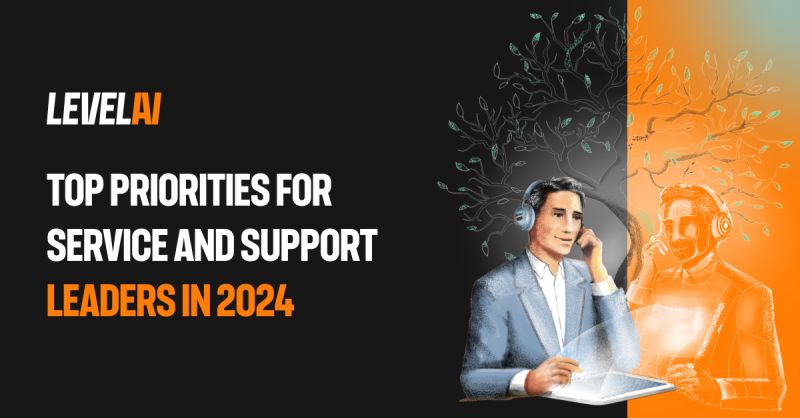
Customer Support Automation
One of the key areas where Level AI excels is in customer support automation. By integrating advanced NLP and ML technologies, Level AI offers intelligent virtual assistants capable of understanding and responding to customer queries with high accuracy. These AI-driven assistants handle routine inquiries, provide detailed information, and even troubleshoot common issues, freeing up human agents to focus on more complex problems. This not only improves efficiency but also enhances the overall customer experience by providing timely and accurate support.
Sales and Marketing Optimization
In the realm of sales and marketing, Level AI’s solutions leverage AI to analyze customer data, predict buying behaviour, and personalize marketing efforts. The platform utilizes predictive analytics to identify potential leads and determine the most effective ways to engage them. By analyzing past interactions and preferences, Level AI enables businesses to tailor their marketing campaigns to individual customer needs, resulting in increased conversion rates and customer satisfaction.
Product Development and Innovation
Level AI also plays a significant role in product development and innovation. By harnessing data from customer feedback, social media, and market trends, companies can use AI to identify unmet needs and emerging opportunities. Level AI’s analytical tools help in understanding consumer sentiment and preferences, enabling businesses to develop products that better meet market demands. Moreover, AI-driven prototyping and testing streamline the product development process, reducing time-to-market and increasing innovation efficiency.
Human Resources Management
Level AI transforms human resources management by offering AI-based solutions for recruitment, training, and employee engagement. Through the use of AI, HR departments can improve the recruitment process by scanning resumes, identifying suitable candidates, and even conducting preliminary interviews using chatbots. Furthermore, Level AI provides tools for personalized employee training programs and performance tracking, helping to ensure that employees receive the support and development opportunities they need to thrive.
Finance and Accounting Automation
In the finance and accounting sector, Level AI automates various tasks such as invoice processing, expense reporting, and financial analysis. The platform’s AI algorithms quickly and accurately process large volumes of financial data, reducing the potential for human error and increasing operational efficiency. Additionally, real-time financial insights enable businesses to make informed decisions and maintain compliance with regulatory requirements.
As we advance into the future, Level AI continues to innovate and expand its applications, demonstrating how AI can revolutionize various aspects of business operations. The integration of Level AI into these sectors showcases the transformative potential of AI to drive efficiency, innovation, and growth. The next sections will delve deeper into case studies and real-world examples of how Level AI has been successfully implemented to achieve measurable results.
The Technology Behind Level AI

The heart of Level AI lies in its innovative features and algorithms, which we explore in detail.
Innovative Features and Algorithms
Level AI’s technology stack is built on advanced machine learning models and algorithms designed to process and analyze vast datasets.
- Machine Learning Models: These models are trained on extensive datasets to recognize patterns and make predictions.
- Natural Language Processing (NLP): Allows the platform to understand and interpret human language, improving communication and decision-making.
- Predictive Models: Utilized to forecast trends and behaviors.
Learning Models and Evolution
Level AI’s learning models continuously evolve by incorporating new data, ensuring that the predictions and recommendations remain accurate and relevant.
- Reinforcement Learning: Models improve by learning from their successes and failures.
- Continuous Learning: Regular updates to the models based on real-time data.
Infrastructure and Capabilities
Level AI’s robust infrastructure and expansive capabilities form the bedrock of its high-performance platform. The system is designed to handle large-scale data processing and complex computational tasks efficiently.
- Cloud-Based Infrastructure: Level AI leverages cloud infrastructure to ensure scalability, reliability, and flexibility. The cloud-based approach allows for easy deployment and scaling of AI solutions across different industries and geographic regions.
- High-Performance Computing: The platform utilizes high-performance computing resources to manage and process extensive datasets swiftly. This capability enables real-time analytics and decision-making, empowering businesses to respond promptly to dynamic market conditions.
- Data Security and Compliance: Security is a paramount concern for Level AI. The platform incorporates robust security protocols to protect sensitive data and ensure compliance with industry standards and regulations. Encryption, access control, and regular audits are some of the measures taken to safeguard data integrity and confidentiality.
Level AI’s infrastructure also supports advanced analytics and visualization tools, facilitating comprehensive data analysis and presentation.
- Advanced Analytics Tools: These tools provide in-depth insights into various business functions, helping organizations to uncover patterns and trends essential for strategic planning.
- Visualization Capabilities: Sophisticated visualization capabilities transform complex data into intuitive and actionable dashboards and reports. These visuals help stakeholders understand key metrics and informed decision-making effectively.
The seamless integration of these features ensures that Level AI can deliver superior value and performance to its users. As we proceed, we will explore real-world case studies that exemplify how Level AI’s technology has driven success and innovation for its clients.
Case Studies
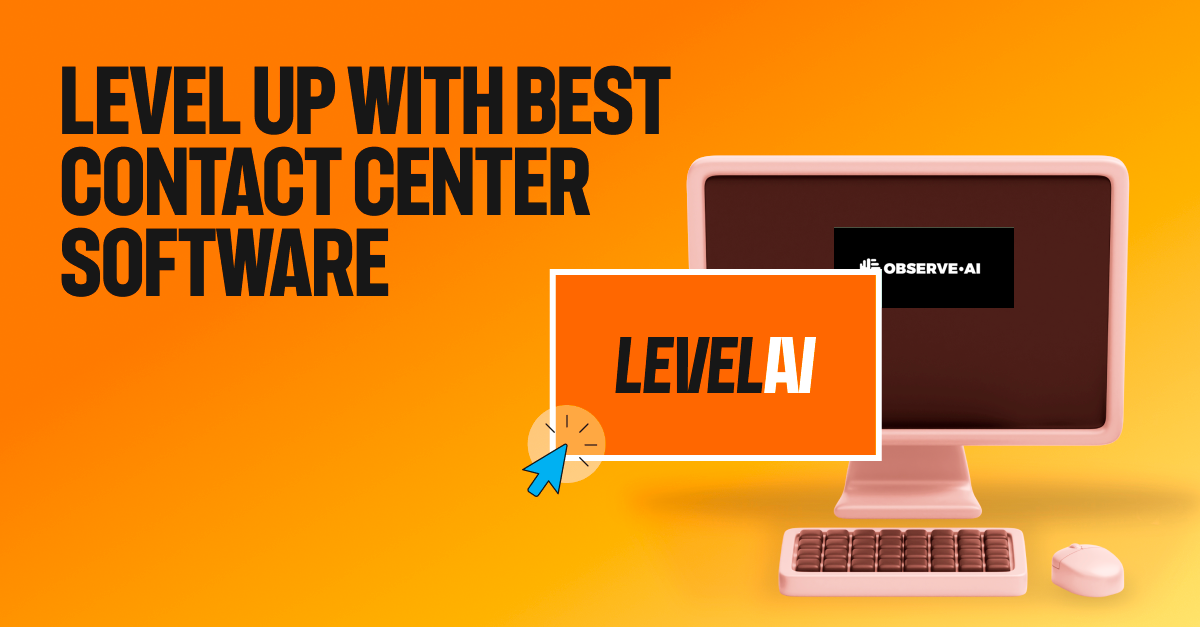
Successful Implementation in Retail
One of the standout examples of Level AI’s impact is its implementation in the retail sector. A major retailer partnered with Level AI to enhance customer experience and streamline operations.
Challenges Faced:
- Inefficient customer support processes
- Inability to predict inventory requirements accurately
- Limited understanding of customer preferences and trends
Solutions Implemented:
- Integration of AI-powered virtual assistants in customer support to handle routine queries
- Use of predictive analytics to forecast inventory needs and optimize supply chain management
- Deployment of NLP tools to analyze customer feedback and social media interactions, gaining insights into consumer behavior and preferences
Results Achieved:
- Significant reduction in customer support response times
- 20% improvement in inventory forecasting accuracy, leading to cost savings
- Better understanding of customer preferences and behavior, enabling personalized marketing campaigns and product recommendations.
Improving HR Processes in Healthcare
Another remarkable success story is how Level AI helped a large healthcare system improve its HR processes. The organization faced challenges with employee retention and training efficiency.
Challenges Faced:
- High employee turnover rates
- Inconsistent onboarding and training processes
- Limited career growth opportunities for employees
Solutions Implemented:
- Utilization of machine learning models to identify patterns and predictors of employee turnover, allowing proactive measures to retain valuable employees
- Development of custom training programs based on employee skill sets, using predictive analytics to identify knowledge gaps and areas for improvement
- Implementation of career development plans aligned with each employee’s goals and potential, utilizing data-driven insights.
Results Achieved:
- 30% reduction in employee turnover rates
- Significant improvement in onboarding and training processes, leading to increased efficiency and productivity
- Higher employee satisfaction and engagement, resulting in better performance and career growth opportunities.
Conclusion
Level AI is at the forefront of the AI revolution, pioneering innovative solutions that drive efficiency, enhance decision-making, and unlock new opportunities across various industries. By understanding and leveraging the technology behind Level AI, businesses can position themselves for success in an increasingly data-driven world.
Level AI is not just a tool; it’s a partner in your digital transformation journey. Sign up today and join the AI revolution with Level AI.




